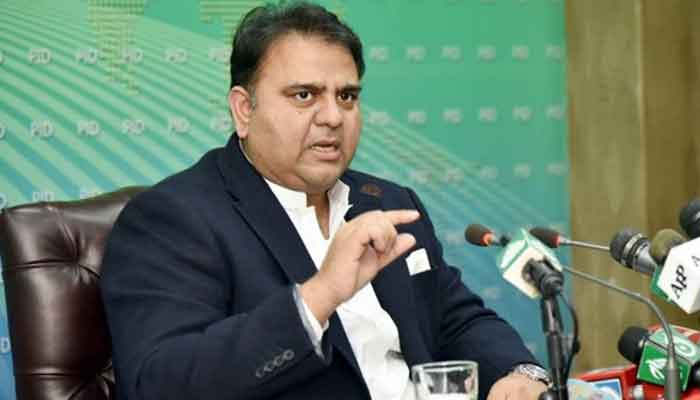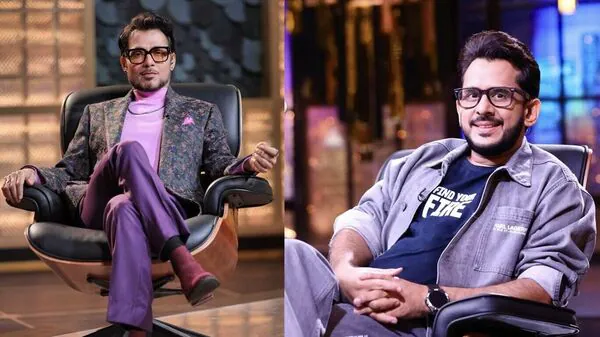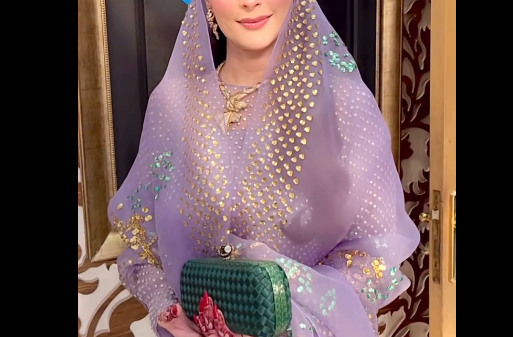The year 2021 can rightly be called a year of elections as the country witnessed four major electoral exercises in the last seven months, and that too, amid talks about electoral reform.
The people of Gilgit-Baltistan (GB) and Azad Jammu and Kashmir (AJK) used their constitutional and democratic right to elect their representatives for the next five years while the country got a new Senate with the election of half of its members in March.
Besides, by-elections were also held to nine seats of the National Assembly and the provincial assemblies in all the four provinces – most of them were held on the same day.
The outcome of all these elections remained as per expectation. Being the ruling party at the federal level, the Pakistan Tehreek-i-Insaf (PTI) emerged made gains in the Senate as well as in GB and AJK, the two regions with special constitutional status. There were few upsets in the by-elections but these were also expected due to the regional and local political dynamics.
Interestingly, all the three major parties – the PPP, the PML-N and the PTI – accused one other of rigging and influencing the outcome of the elections in the constituency they lost. All the results of the Senate elections were as per expectations, except the defeat of PTI’s Dr Abdul Hafeez Shaikh at the hands of PPP’s Syed Yousuf Raza Gilani on the general seat from Islamabad.
The PTI leaders, including Prime Minister Imran Khan, got so upset over this lone defeat that they started lashing out at the Election Commission of Pakistan (ECP) for what they called its failure to prevent the alleged use of money in Gilani’s election.
In his televised address to the nation, Khan went so far as to call for the resignations of the Chief Election Commissioner (CEC) and all the four Members of the Commission. The main reason for their anger was the opposition by the ECP to the plea taken by the government in the presidential reference before the Supreme Court, seeking open balloting for Senate.
This is the backdrop against which the political parties are set to begin consultations on the much-talked electoral reform in the country.
The opposition parties, after initial reluctance, have forwarded the names of their representatives to the National Assembly Speaker Asad Qaiser for yet-to-be notified Special Parliamentary Committee on Electoral Reform. The Senate Standing Committee on Parliamentary Affairs headed by PPP’s Taj Haider has already started deliberations on the controversial bills amending the Elections Act 2017 which the government had bulldozed through the National Assembly.
The main emphasis of the PTI is on the use of electronic voting machines (EVMs), allowing dual nationals to contest the parliamentary elections, and providing overseas Pakistanis an opportunity to cast their votes during the general elections.
All three measures are facing opposition not only from the opposition parties but also from the ECP.
On 10 June, the government literally bulldozed legislation in the National Assembly by getting 21 laws approved, including the controversial Elections (Amendment) Bill 2020, after suspending the rules of business amid the opposition’s strong protest and boycott.
Major changes proposed in the bill include more financial autonomy to the ECP; appeal to the court by any aggrieved person on delimitation lists; provision to challenge the appointment of polling officers/staff within days of appointment; increase in nomination fee for the candidates; delimitation on the basis of population, instead of registered voters; vacation of seats of returned candidate if oath is not taken within 60 days of the first sitting of the assembly; voting right for overseas Pakistanis; and the use of EVMs in elections.
Before this, the government had already promulgated a presidential ordinance in May authorizing and binding the ECP to procure EVMs and to enable the overseas Pakistanis to exercise their right to vote while staying in their country of residence in the next general elections.
Defending the government’s move, Federal Minister for Information Fawad Chaudhry reportedly explained the government had done it to provide the ECP ample lead time to make arrangements for the use of EVMs and for enabling the overseas Pakistanis to cast their votes in the next general elections.
He recalled that the ECP before the 2018 elections had argued that it had not been given sufficient lead time to make such arrangements. Therefore, he said, the ECP was being provided an opportunity to seek the assistance of Nadra or any other agency for making the arrangements before time.
He disclosed that a Spanish firm had already been engaged in providing technical assistance to the ECP to facilitate voting by overseas Pakistanis. The minister claimed that the ECP was on board on both issues.
However, the claim was rejected by the ECP. Daily Dawn quoted an unnamed ECP official to have stated that the Commission was not part of the meetings chaired by Prime Minister Imran Khan on the use of technology in the elections.
He also claimed that the PM had been shown a nine-year-old “lab-produced voting machine” that the ECP had already rejected at the outset for lacking features of international standards. The ECP official said internet voting was not in use anywhere across the world, except in Estonia, where 175,000 out of total of 900,000 voters opted for it.
The official said there were around nine million holders of the National Identity Card for Overseas Pakistanis (NICOP) of over 18 years in the world, with 1.8 million of them living in Saudi Arabia alone, followed by around 1.5 million in the UAE. The names of these nine million overseas Pakistanis are also on the electoral rolls.
He warned that employing the technologies in haste could be counter-productive and compromise the quality of polls. He claimed that international and local NGOs, too, had endorsed ECP’s stance on the record.
The ECP has formally conveyed its concerns to the government in writing over the controversial bill and raised objections against 45 out of the total 72 proposed amendments. It has termed 15 amendments repugnant to the Constitution and five inconsistent with the act itself, in addition to opposing 17 more on administrative grounds.
The ECP also has objections over the move to give Nadra a role in the preparation and revision of electoral rolls, terming this in conflict with the Constitution under which the registration of voters is the exclusive prerogative of the ECP.
The PTI had been pursuing the issues of EVMs and voting facilities for overseas Pakistanis since the 2013 general elections. The PTI members in the previous parliamentary committee on electoral reform, under the then Finance Minister Ishaq Dar, had raised the issues on multiple occasions.
President Arif Alvi was also a member of the committee at that time and was in the forefront in convincing the ECP for the use of the EVMs and the voting by overseas Pakistanis.
The ECP conducted a mock exercise in 2015 in four countries and later commission officials informed the committee that the mock exercise carried out in Saudi Arabia, the UK, the US and the UAE had failed for a number of technical and legal reasons.
Addressing a news conference on 3 May, Adviser on Parliamentary Affairs Babar Awan said the EVMs had already been in use in the Lahore High Court Bar Association elections for four years. Similarly, Information Minister Fawad Chaudhry claims that hacking of the EVMs is not possible as these machines will not be connected to the internet and be installed standalone.
Prime Minister Imran Khan had directly invited the opposition to “sit together” with the government and discuss the use of EVMs to “reclaim the credibility of elections”. “Unfortunately, no substantive [electoral] reforms were put in place,” the prime minister had said in a series of tweets.
“Technology and use of EVMs are the only answer to reclaim credibility of elections. I invite the opposition to sit with us and select from EVM models we have available to restore the credibility of our elections.
“In NA-249 by-election, despite a low turnout, all parties are crying foul and claiming rigging. The same happened in Daska recently and in Senate elections. In fact, apart from 1970 election, in every election claims of rigging have raised doubts over the credibility of election results”.
The Prime Minister also gave the example of last year’s presidential elections in the US, saying nobody paid heed to rigging allegations by former president Donald Trump only because of the use of technology in the process.
The opposition, on the other hand, is not ready to give any consideration to the EVM proposal. PML-N’s supremo Nawaz Sharif through a tweet himself opposed the idea when he said the issue was not of electoral reform, but the sanctity of vote.
“Everyone knows who is behind the desecration of votes and stealing the mandate of the people. Unless this issue is resolved, EVMs will be useless like the RTS,” said Mr Sharif, demanding that the practice of changing the results through rigging and coercion must come to an end.
PPP Chairman Bilawal Bhutto-Zardari once questioned as to what guarantee the government had that the elections would not be hacked by India or RAW through EVMs.
Similarly, PPP Secretary General Farhatul- lah Babar is of the view that “the use of the EVMs is a non-starter in Pakistani context”. In a statement, he had said that numerous studies had shown that it was “susceptible to manipulation and liable to be used for electoral fraud”.
“The computer-based system of voting requires computer literacy that is lacking in Pakistan. Even some of those countries which initially adopted it in some constituencies have discontinued it,” said Mr Babar.
Moreover, Mr Babar said, in a country where “state agencies switched on and off-internet and social media platforms with impunity on the pretext of national security”, it was not easy to trust the EVMs. He said the slogan “We do not trust voting computers” that reportedly was first adopted in the Netherlands in 2006 was likely to become a rallying point in Pakistan also.
The PPP and the PML-N are of the view, and rightly so, that the use of EVMs will not work if the establishment does not agree
to distance itself from elections. Besides keeping the establishment out of politics, the parties are also required to adopt a democratic culture and learn to accept defeat when in order.
The PTI members cite examples of the countries like the US and India in support of their argument for the use of EVMs, but they forget that the elections in these countries are conducted under the sitting governments. Can Pakistan do it? Absolutely not.
Therefore, there is a need to change the mindset of the politicians and the nation as a whole as, without it, no reforms or technology will work. Before the electoral reform, the country needs judicial reform. The failure of the judiciary in timely deciding election-related disputes is also one of the key failures of our democracy.
The time has come for the political leadership to sincerely focus on steps to empower the ECP in real terms and to ensure strict implementation of the existing laws, instead of making new ones. The recent elections held in the country have once again highlighted the real problem, i.e., the lack of implementation of the laws and the powerlessness of the Election Commission issues that cannot be resolved through the use of EVMs.










